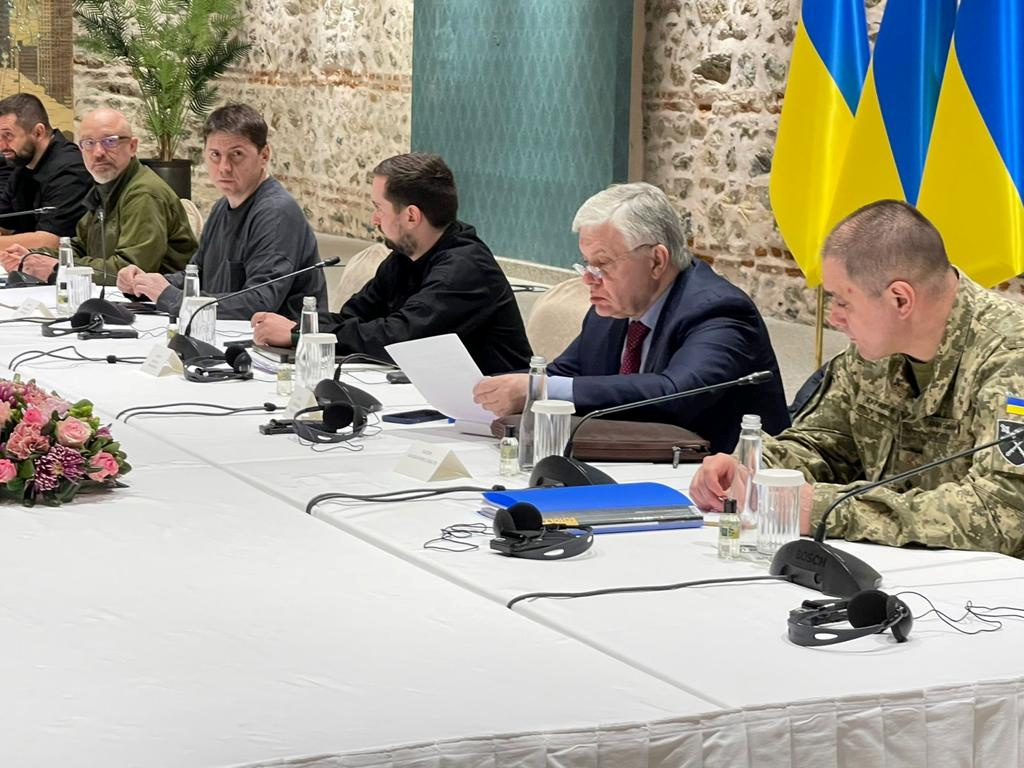U.S. Elections Could Bring a Reset in Relations with Türkiye
Turkish policymakers are hoping that if Donald Trump wins the U.S. presidential election in November that it will lead to a revival in bilateral relations. At the same time, if Kamala Harris is victorious, they are gauging that it will lead to the further marginalisation of Türkiye’s importance to the U.S. and the administration’s continued view of it as an increasingly authoritarian state. Regardless of the outcome of the elections, Türkiye will pursue its current policy of balancing between the powers with respect to the war in Ukraine.
(1).png) Kevin Lamarque / Reuters / Forum
Kevin Lamarque / Reuters / Forum
Current Türkiye-U.S. Relations
With President Joe Biden taking office in the United States in early 2021, Turkish policymakers welcomed the new U.S. administration’s reversal of the entry ban on citizens of Iran, Iraq, Libya, Somalia, Sudan, Syria, and Yemen imposed under Trump. They also welcomed the U.S. willingness to return to the nuclear agreement with Iran. However, Turkish-American relations have not improved since then. Biden has not visited Türkiye in the past four years, nor has Turkish President Recep Tayyip Erdoğan hosted a U.S. representative. Since 2020, the leaders have met only a few times on the sidelines of international meetings, mostly NATO summits. This has been a sign of U.S. disapproval of Türkiye’s democratic regression, Biden’s likely personal dislike of Erdoğan, whom he described as an “autocratic” leader in a December 2019 interview with the New York Times, and Türkiye’s purchase of an S-400 missile and air defence system from Russia. The Türkiye-Russia agreement was concluded in 2017 and resulted in U.S. CAATSA sanctions, which were imposed on Türkiye during President Trump’s tenure, as well as exclusion of the country by the U.S. in July 2019 from the consortium producing the F-35 fighter jet, a decision that was not reversed by the Biden administration. Despite the announcement in April 2022 of a strategic dialogue mechanism providing a forum for bilateral consultations at the ministerial level between Türkiye and the U.S., conflicts and issues from previous American administrations remain. Among them, Biden refused to extradite members of the Gülen group, including its religious leader Fetullah Gülen (who died on 21 October this year), whom Turkish policymakers accused of organising the attempted coup in Türkiye in July 2016. The climate in bilateral relations was improved by the Turkish parliament’s decision to approve Sweden’s accession to NATO in January this year. At the time, the Biden administration asked Congress to allow the sale to Türkiye of F-16 multirole aircraft and 80 modernisation kits for the aircraft it already has, but the details and timeline of the deal have not yet been finalised.
Regional Implications of Türkiye-U.S. Tensions
The two countries have divergent interests on regional security issues, especially vis-à-vis Syria. While it is true that the Trump administration decided to withdraw troops from the Turkish-Syrian border in October 2019, allowing Türkiye to carry out a military operation, the Americans have not abandoned support for the Kurdish YPG in the fight against ISIS. The Turks consider the YPG an extension of the Kurdistan Workers' Party (PKK), a designated terrorist group and a threat to Türkiye’s internal security. Türkiye and the U.S. differ in their assessment of the Gaza war. While Erdoğan positions himself as a defender of the Palestinian cause and supports Hamas, Republican circles approve of Israeli Prime Minister Benjamin Netanyahu’s policies. Democrats take a critical stance towards him, which, in the event of a Harris victory, could create a potential area of agreement with Erdoğan.
The U.S. administration also recognises the dangers posed by Türkiye’s balancing policy with respect to the Russian-Ukrainian war. Last September, the U.S. Treasury Department imposed sanctions on five Turkish companies, accusing them of trading in dual-use goods with Russia. Turkish policymakers will, as before, seek to organise ceasefire negotiations, and later to work out a multilateral peace mechanism ending the war between Russia and Ukraine. The new U.S. administration, regardless of the outcome of the elections, may be interested in these proposals, especially since the Biden administration has already responded positively to Türkiye’s mediation initiative in Ukraine, such as steps to allowing the export of Ukrainian grain via the Black Sea.
A thorny issue in bilateral relations was President Biden’s 2021 recognition of the 1915-1917 massacre of Armenians within the Ottoman Empire as genocide. The address delivered by the American president at the time was sharply criticised by Turkish diplomacy. Türkiye’s efforts to normalise Turkish-Armenian relations in 2022 will not affect the cessation of the U.S. side’s use of the term “genocide” but may be welcomed by the next U.S. administration, which will be keen to stabilise the situation in the South Caucasus.
Conclusions and Perspectives
Although Türkiye during Trump’s first term in office was removed from the F-35 programme and CAATSA sanctions imposed on the country, Turkish policymakers hope that if he wins again, given the new regional security environment, he could help improve bilateral relations.
The Turkish perception is that this could translate into an increase in Türkiye’s prominence in U.S. regional politics, as well as in an expansion of its military influence in Syria and Iraq. Turkish policymakers are keen on freedom of military action along the Turkish-Syrian border and U.S. support for the Turkish concept of a “security zone” in northeastern Syria of more than 30 km wide, to which the Turks could relocate some of the more than 3 million Syrian refugees currently on its territory.
Should the Democratic candidate come to power, Turkish political elites expect continued criticism of Türkiye over human rights and rule-of-law violations. They also expect that the U.S. may seek to strengthen the institutional basis of Turkish-U.S. relations at the ministerial level and the marginalisation of Erdoğan in a leading role, which could be a challenge because under the Turkish presidential system, foreign policy is centralised and subordinate to the president. An impetus for reviving the strategic dialogue mechanism would be for the leaders to meet at the heads of state level and work out a compromise regarding Turkish-American cooperation in Syria. This scenario seems more likely in the event of a Trump victory.
Regardless of the outcome of the U.S. election, Türkiye will not radically change its approach to Russian aggression against Ukraine. Turkish policymakers will continue the policy of balancing and will not join the U.S. sanctions on Russia. It can be assumed that both the Republican candidate and the Democratic Party representative will be willing to impose sanctions on Turkish financial institutions cooperating with Russia, which in the long run could deepen Türkiye’s dependence on cooperation with China, among others.
Regardless, Türkiye hopes to continue to play an important role in U.S. foreign, and especially regional, policy due to its NATO membership. No matter the U.S. administration, Türkiye demonstrates especially that its location near the most significant ongoing armed conflicts from a U.S. perspective—Gaza and Ukraine—requires that it be a strategic partner for the United States.
Given Türkiye’s role in the Black Sea basin and the position it has already achieved as a result of its policy towards Russian aggression against Ukraine, negotiating a political instrument to end Russian hostilities in Ukraine does not seem possible without Türkiye’s participation. Therefore, it is in Poland’s interest to work to increase its allied credibility. To this end, it is desirable that the pro-Western vector in Turkish foreign policy is increased within the framework of the Poland-Romania-Türkiye trilogue, which in the long term will have a positive impact on the level of security in the Mediterranean, as well as in the Black Sea region.



